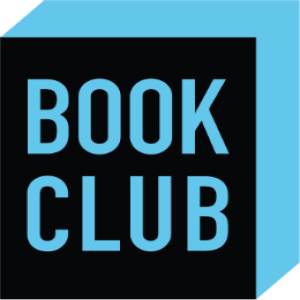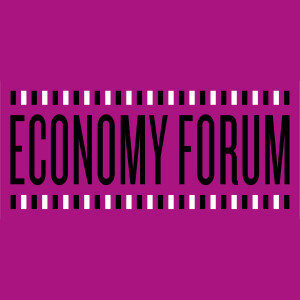Academy of Ideas
The Academy of Ideas has been organising public debates to challenge contemporary knee-jerk orthodoxies since 2000. Subscribe to our channel for recordings of our live conferences, discussions and salons, and find out more at www.academyofideas.org.uk
The Academy of Ideas has been organising public debates to challenge contemporary knee-jerk orthodoxies since 2000. Subscribe to our channel for recordings of our live conferences, discussions and salons, and find out more at www.academyofideas.org.uk
Episodes

Friday Jun 12, 2020
#BookClub: When art imitates life - Albert Camus’ The Plague in lockdown
Friday Jun 12, 2020
Friday Jun 12, 2020
BOOK CLUB: The townspeople of Oran are in the grip of a deadly plague, which condemns its victims to a swift and horrifying death. Fear, isolation and claustrophobia follow as they are forced into quarantine. Each person responds in their own way to the lethal disease: some resign themselves to fate, some seek blame, and a few, like Dr Rieux, resist the terror. Sound familiar? David Bowden re-reads Albert Camus' classic.

Friday Jun 12, 2020
#LockdownDebates: What does George Floyd’s killing mean for British society?
Friday Jun 12, 2020
Friday Jun 12, 2020
LOCKDOWN DEBATE: As we now all know, on 25 May, a 46-year-old black man named George Floyd was arrested on suspicion of paying for cigarettes with a fake $20 bill. Within 20 minutes he was dead - police officer Derek Chauvin had knelt on Floyd’s neck for nine minutes. Almost immediately, protests, often violent, spread across the US. American cities seem to be burning in righteous rage at the injustice. Since then, largely under the slogan of Black Lives Matter, spontaneous, mass demonstrations have taken place in solidarity with Floyd across the world. What does this all mean for those of us living outside the US? In the UK, protests have taken place in Hyde Park, Parliament Square and other areas with large numbers of mostly young people understandably appalled at racist violence wherever it happens. But are the parallels between the UK and America so obvious? As groups of white people publicly take the knee, is it significant that these discussions about race in 2020 are framed in terms of white privilege and identity, instead of a collective fight against racism? Patrick Vernon OBE, Inaya Folarin Iman, Dr Shahrar Ali, Kunle Olulode and Dr Cheryl Hudson discuss.

Thursday Jun 04, 2020
#LockdownDebates: Morality during a pandemic, with Susan Neiman and Frank Furedi
Thursday Jun 04, 2020
Thursday Jun 04, 2020
LOCKDOWN DEBATE: The worldwide response to the pandemic has challenged many long-cherished values. Democracy was put on hold, with elections postponed and parliaments in recess. Freedoms were curtailed, with extensive powers granted to police forces. Traditional markers of compassion, like funerals, were cancelled. And many say that essential workers, from nurses to shop-assistants, were put in harm’s way. Amidst such widespread moral challenges, how are we to decide what’s right? Whilst a rich tradition of philosophy reflects on how to be moral, can it be useful in such ‘unprecedented’ times? Is there anything we can learn from history? When we are urged to ‘follow the science’ and obey government guidance, is there any room for individual judgement and moral autonomy? Susan Neiman and Frank Furedi discuss.

Thursday Jun 04, 2020
#LockdownDebates: Has Covid-19 killed globalism?
Thursday Jun 04, 2020
Thursday Jun 04, 2020
LOCKDOWN DEBATE: What lessons should we draw from the pandemic response? Is China turning from a ‘status quo’ power to one that will become more disruptive and active in pursuit of global influence? To what extent will the international order and its institutions continue to fray? Are we seeing the return of the nation state, or will realpolitik in the face of the pandemic likely encourage renewal of cooperation and new institutions? What is the likely impact of the inevitable economic restructuring? In short, where next for geopolitics - and is the future one of international disorder? Dr Philip Cunliffe, Mary Dejevsky, Lord Maurice Glasman and Joan Hoey discuss.

Tuesday May 26, 2020
#EconomyForum: Covid-19 and the US economy
Tuesday May 26, 2020
Tuesday May 26, 2020
ECONOMY FORUM: When members of the US Federal Reserve met in late January, they expressed confidence in the country’s ability to stretch a record run of economic growth and job gains well into 2020. Indeed, 2019 had seen strong performance in certain indicators, including rising real incomes among lower-earners. Two months later, the US was in a coronavirus lockdown, and the economy was in freefall. Some 34million jobs have been lost, and GDP is expected to decline by 35% or more in the second quarter. What are the prospects for the US economy to recover? Pre-Covid, was the economy as robust as commentators claimed? Does the crisis provide an opportunity for the US to address its weaknesses? Will government spending have a positive effect, or will a debt overhang be an obstacle to recovery? Will the Fed’s easy money policy work? And, what will the US’s economic problems mean for the world economy? James Matthews introduces.

Tuesday May 26, 2020
#LockdownDebates: Is ‘gotcha’ journalism the new normal?
Tuesday May 26, 2020
Tuesday May 26, 2020
LOCKDOWN DEBATE: What is behind this seeming media crisis and what are the implications? With the press already having taken a beating in some quarters for their failures over reporting Brexit, how worried should we be over the collapse of press standards, and the way the ‘media class’ seems to stand apart from the rest of society? Are we shooting the messenger for the failings of others, such as government mismanagement, even misinformation? What is the news and commentary we need during this period, and how do we go about ensuring the survival and prospering of a free, critical press? Claire Fox, Jodie Ginsberg, Daisy McAndrew and Freddie Sayers discuss.

Tuesday May 26, 2020
#EconomyForum: China, Covid-19 and the West
Tuesday May 26, 2020
Tuesday May 26, 2020
ECONOMY FORUM: Earlier this year, as what would become known as Covid-19 struck Wuhan, there was some discussion about how China’s GDP might temporarily fall and what impact that fall might have on the world economy. There was little sense that the disease might become a pandemic and affect the whole world. Now, with most Western countries facing unprecedented falls in economic output, China appears to have ridden the storm remarkably well. Like it or not, the UK, EU and US are remarkably dependent upon on China – and not just for PPE. Beyond the tempers on all sides, what real cleavages – China vs the West, China vs its neighbours, and among Western allies over tactics toward Beijing – can we expect to develop in 2020-21? Austin Williams and James Woudhuysen discuss.

Tuesday May 26, 2020
#BookClub: The moral dilemma of Ian McEwen’s Machines Like Me
Tuesday May 26, 2020
Tuesday May 26, 2020
BOOK CLUB: Machines Like Me occurs in an alternative 1980s London. Charlie, drifting through life and dodging full-time employment, is in love with Miranda, a bright student who lives with a terrible secret. When Charlie comes into money, he buys Adam, one of the first batch of synthetic humans. With Miranda’s assistance, he co-designs Adam’s personality. This near-perfect human is beautiful, strong and clever - a love triangle soon forms. These three beings will confront a profound moral dilemma. Ian McEwan’s subversive and entertaining new novel poses fundamental questions: what makes us human? Our outward deeds or our inner lives? Could a machine understand the human heart? This provocative and thrilling tale warns of the power to invent things beyond our control. Max Sanderson introduces.


